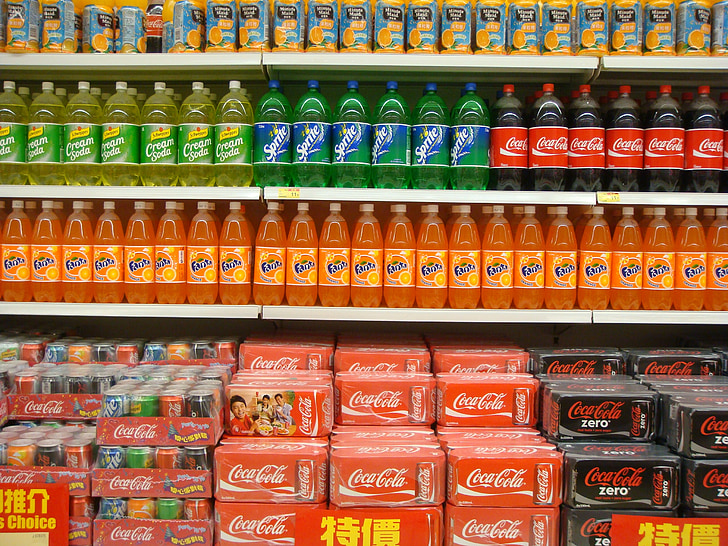Opinion: Americans love their iced, sugary, caffeinated drinks
Photo via Hippopx under Creative Commons license
Sugary drinks are a big part of many Americans’ daily lives, which surprised me when I got to the U.S. as an exchange student. Therefore, I was wondering what these drinks actually do to your body.
As a Dane, it was quite shocking to come to America to see how sugary drinks actually play a big part of people’s lives, because I think that people in Denmark simply do not drink as much as people do in America.
To be honest there are prejudices about Americans and their way of eating. There are many quick and unhealthy options for food here, and there is always some kind of fast food restaurant within a short distance. When you go get some kind of food, a drink is considered a necessary part of the meal.
Before I got here I did not think much about drinks, but I have tried a lot of different kinds now. I think I have had more drinks in the past seven months here than I have had in the last three years in Denmark.
I do love drinks, especially sweet tea since it is a staple of Georgia, but it still has a lot of sugar and other unnecessary nutrients we should avoid. I am not trying to make people feel bad about their beverage intake, but I am just telling you the reality.
There are so many different opportunities for sugary drinks to crop up. When you go out to eat at a restaurant and you order a drink, the server comes with a free refill before you even finish your first drink. In Denmark, you have to pay to even get tap water at a restaurant.
The temptation to accept another free drink often takes the win even though we know we probably should not.
The drink section in grocery stores in America is huge, which does not help the temptation to buy one.
A CDC study shows that 63% of Americans older than 18 drink at least one sugar-sweetened drink per day, which is way too much sugar to play such a big part of Americans’ lives.
Sugar-sweetened drinks can lead to multiple diseases, including Type 2 diabetes, obesity, fatty liver disease, and an increased risk of developing heart disease or even cancer.
Even one 12-ounce soda will fulfill the maximum daily sugar intake for an adult.
The bacteria in your mouth have a blast because they get to feed on the sugar and then produce acid that attacks your teeth after only twenty minutes. How fun, right?
More than 90% of adults in the United States regularly consume drinks that contain up to 200 mg of caffeine. Many drinks contain caffeine, which has many side effects such as difficulties sleeping, a rapid heartbeat, headaches, and maybe even addiction.
Even allegedly healthier options, such as Coke Zero and Diet Coke, contain caffeine even though they have less than actual coffee.
Y’all really like ice in your drinks. It is simply too much from a European point of view. I like ice, but not for it to be two-thirds of my drink. My poor mouth gets so cold.
At restaurants in Denmark this is a smart trick because if your drink is full of ice, you have to pay for another drink.
You can reduce your intake of caffeine and sugary drinks. It is quite simple. Just choose water instead, or maybe even start with sparkling water. Just take it one step at a time. Start by consuming one less drink a day, and soon you will not need it anymore. You got this!
Opinions expressed in editorials are those of the writer(s). These views may not represent the adviser, The Prowler, advertisers/sponsors, the Starr’s Mill High School administration or staff , or Fayette County Public Schools as a whole. Please see our FAQs for more information pertaining to the rights of The Prowler’s staff members.


